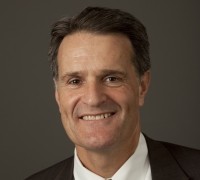
Accountability, an established track record, and organizational maturity are the major determinants for institutions in selecting hedge fund managers.
“We have thousands of hedge funds in our databases,” said Q Belk, director of diversifying investment at Cambridge Associates. “We actively track hundreds of them for client recommendation, many of whom we meet with quarterly.”

Q Belk, Cambridge Associates
What do institutions look for in a manager? “There’s no one-size-fits-all formula,” said Belk. “We do insist that a manager be aligned with investors, with appropriate fees, liquidity, and good communications. If a manager isn’t aligned with investors, that biases us away.”
Institutions look to hedge funds for risk management and diversification, according to new research from Cerulli Associates, a Boston-based global analytics firm.
“Numerous institutions are using hedge funds to reduce risk in their investment portfolios,” said Michele Giuditta, associate director at Cerulli. “Our research shows that institutional investors overall have been steadily increasing the portion of their assets allocated to hedge funds over the past five years. Endowment funds, family offices, and foundations were early adopters and currently remain established investors.”
Asset managers are experiencing demand for a range of hedge fund strategies. During the 12-month period ending March 31, 2013, managers surveyed by Cerulli reported multiple requests for directional equity strategies (44%) and multistrategy/multimanager products (78%).
Asset managers have refined their approach to asset allocation over the past several years to emphasize risk-based approaches,” Giuditta said. “Using a risk-based lens, managers aim to adjust their portfolios to offset periods of extreme volatility and market stress that may affect both equity- and credit-related investments in the same ways.”
Pension investors are responsible for the largest portion (55%) of institutional investor assets invested in hedge funds, according to Preqin data. Nonetheless, institutional investors overall have been steadily increasing the portion of their assets allocated to hedge funds during the past five years. Endowment funds, family offices, and foundations were early adopters and currently remain established investors.
Many institutional managers gained their first exposure to hedge funds via investments in fund-of-fund vehicles. Since 2009, however, funds of funds have faced intense scrutiny due to poor performance, exposure to fraudulent managers, and high fees. These factors have combined to spur many institutional investors to prefer investing directly in single-manager hedge funds, according to Cerulli.
Family offices and foundations have allocated at least 15% of their portfolio assets in hedge funds since 2009, and their allocations were inching closer to the 20% mark in 1Q 2013, according to Cerulli.
More recently, asset managers are experiencing demand for a range of hedge fund strategies, in particular, credit-related, global macro, and event-driven.
“Institutional investors have been under significant pressure since 2008 to increase their portfolio returns without inflating their risk profiles,” Giuditta said. “That is a tall order, and it has led many institutional managers toward a renewed interest in developing hedge fund products.”
Belk, who was previously a managing director at the Dartmouth College Investment Office, where he was responsible for hedge fund and distressed portfolios and private equity, oversees a team of research consultants and analysts covering investment managers in diversifying asset classes and strategies. They include high-yield credit, bank debt, GTAA, active currency, lower-beta hedge funds, global macro and tail risk hedging.
“There is a whole panoply of hedge fund strategies which perform well when equity markets are down,” he said. “By focusing on low-beta strategies, our group supports Cambridge’s efforts to build portfolios that are truly diversified.”






